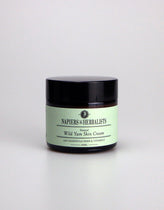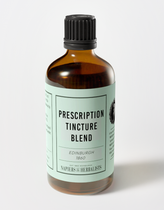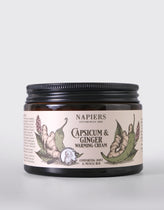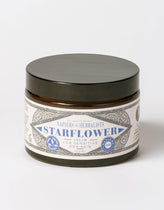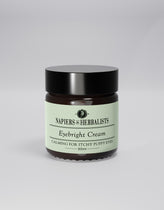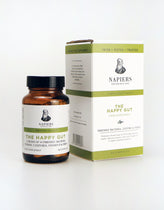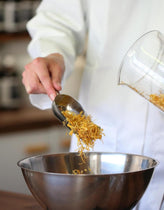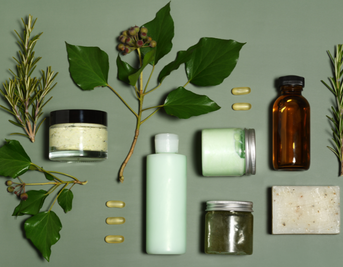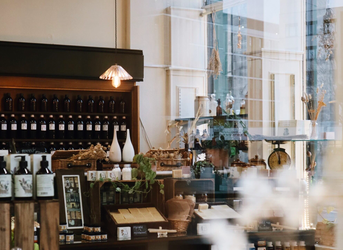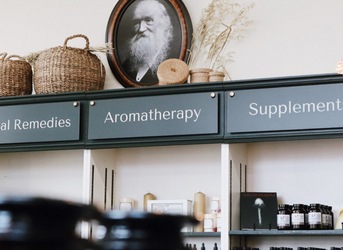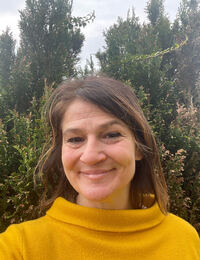Sophrology Practitioner - Mind & Body Therapy Trainee in CBT - Cognitive Behavioural TherapyCOSCA (Counselling & Psychotherapy in Scotland) Cybele is a passionate Sophrologist and founder of Chamapola, Healing Yourself - Healing Together....
Keep ReadingHerb Safety Advice at Napiers At Napiers we take herbal safety very seriously. This goes from the provenance of our herbs - the way they are grown and manufactured - right through to how our customers take them. Nowadays, many customers take ph...
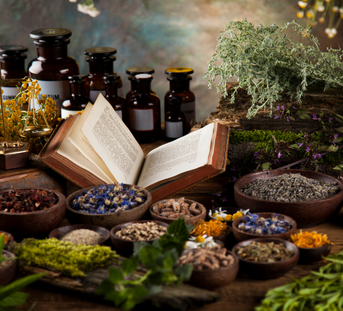
Herb Safety Advice at Napiers
At Napiers we take herbal safety very seriously. This goes from the provenance of our herbs - the way they are grown and manufactured - right through to how our customers take them. Nowadays, many customers take pharmaceutical medicines as well. Here is some advice on the issues around taking herbs with prescription medicines.
1. ADDITIVE EFFECT: Herbs can accentuate the effects of drugs
If you take a herb and a medicine that have the same effect, then you can end up with too much of that effect. For example, if you take valerian - which has a sedative action - at the same time as you take a sedative medicine, then you may become over-sedated. Or, if you take a food supplement like red rice yeast that lowers LDL cholesterol while taking a statin at the same time, then your cholesterol may become too low.
This is not always a negative thing, as reducing your drug needs may well reduce any drug side effects that you are experiencing. However, it does need monitoring so that doses can be adjusted correctly. If you wish to take a herb or food supplement that has the same purpose as a medicine you are taking, please contact our herbalists or your doctor for advice on how to approach this.
2. COMPETITIVE EFFECT: Herbs can cancel out drugs
Some herbs are taken up (metabolised) by the body using the same route (pathways) as drugs. This means that they compete for absorption and may stop all of the drug being absorbed. The herb St John's wort is a classic example. It is absorbed through the liver via a pathway that many drugs use, and is well known for stopping the drugs from fully working. If you are on a critical medication, this may affect your health. Please contact our herbalists or your doctor before taking critical medications with herbs, especially St John's wort, or if you are taking the contraceptive pill.
3. OPPOSITE EFFECT: Herbs can work against drugs
Occasionally drugs and herbs work against each other. For example, an antidiuretic medication should not be taken with diuretic herbs such as dandelion or cleavers. Norr taking stimulating herbs if you are also taking sedatives or sleep medication. If you aren't sure about the potential effects of what you are taking, please ask your health care practitioner.
4. RESTORATIVE EFFECT: Herbs can change a managed condition
Sometimes a herb will improve a condition that is being managed by a drug. This may mean that you have to take less of the drug. For example, if you are taking levothyroxine for an underactive thyroid and your thyroid activity improves when you take a seaweed capsule, your GP may need to lower your dose of the medication. Consult your practitioner if you notice changes.
5. BARRIER EFFECT: Herbs can prevent absorption of drugs
Some herbs and food supplements like slippery elm and marshmallow root, produce a gel-type substance that lines your intestines. This can prevent other medicines from being fully absorbed so they may lose their effectiveness. In these cases it is better to take herbs and drugs at different times of the day, or a few hours apart from each other. Please contact our herbalists or your doctor if you are not sure.
6. REACTIVE EFFECT: Herbal preparations can react with drugs
When used appropriately herbs do not often cause side effects, certainly in comparison to the side effects caused by pharmaceutical drugs. However, some herb-drug combinations can cause side effects. For example, metronizadole reacts with alcohol to make you feel very nauseous. Avoid taking tinctures with metronizadole as they are made from alcohol. Also avoid herbs that accentuate the effects of alcohol such as valerian if you drink heavily.
7. PREGNANCY: Herbs may not suit your baby
Very few herbs have been rigorously tested during pregnancy and breastfeeding. So much of our knowledge on herbs that can be taken by mums is based on traditional use. There are also some herbs that could be harmful to your developing baby. If you are unsure what you can and cannot take during pregnancy and while breastfeeding, please ask us.
8. CRITICAL HEALTH: Operations and critical illness
Herbs can make a very positive contribution in serious health issues. However, if you have an operation, chemotherapy, radiation therapy or retroviral treatment scheduled, please contact our herbalists or your doctor before taking herbs. Some herbs, like high dose garlic, can increase your risk of bleeding or change the way that your blood clots. If you're not sure, stop taking herbs 2 weeks prior to an operation. Ideally, have a consultation with a medical herbalist who can liaise with your doctor to support you during this critical time.
YELLOW CARD SCHEME: Reporting side effects
If in doubt, please ask!
We are happy to look up your medications and give you the most up-to-date advice that we can. We try to stay up to date from our clinical experience, reference books, journals, databases and other sources. Please send us the name and dose of all the medicines you are taking, any supplements, and any herbs that you are intending to take and we will advise. Just email advice@napiers.net or, preferably, make an appointment to see a medical herbalist.
References
Bensky, D., Clavey, S., Stöger, E., with Gamble, A. (2015). Chinese Herbal Medicine: Materia Medica, Seattle, WA: Eastland Press, Inc.
Brinker, F. (2010). Herbals contraindications and drug interactions plus herbal adjuncts with medicines (Fourth edition), Sandy, Oregon: Eclectic Medical Publications.
Gardner, Z. & McGuffin, M. (Editors). (2013). The American Herbal Products Association’s Botanical Safety Handbook (2nd edition). Boca Raton, Florida: CRC Press.
Mills, S., & Bone, K. (2010). The essential guide to herbal medicine safety. Philadelphia, PA., Churchill Livingstone, Elsevier Ltd.
Mills, S., & Bone, K. (2013). Principles and practice of phytotherapy (2nd edition). Philadelphia, PA., Churchill Livingstone, Elsevier Ltd.
Stargrove, M.B., Treasure, J., McKee, D.L. (2008). Herbs, Nutrient and Drug Interactions: Clinical Implications and Therapeutic Strategies, St. Louis, Missouri: Elsevier
Williamson, E., Driver, S., & Baxter, K. (2009). Stockley's herbal medicines interactions. London, United Kingdom: Pharmaceutical Press.
Williamson, E., Driver, S., & Baxter, K. (2013). Stockley's herbal medicines interactions (Second edition). London, United Kingdom: Pharmaceutical Press.
